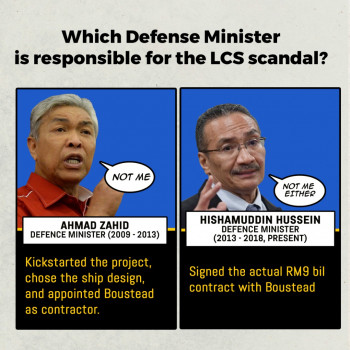 It should be simple as this: a woman’s body belongs to her and no one else has the right to question the choices she makes or dictate how she should live. Even if a woman decides to end her pregnancy, that choice is hers to make.
It should be simple as this: a woman’s body belongs to her and no one else has the right to question the choices she makes or dictate how she should live. Even if a woman decides to end her pregnancy, that choice is hers to make.
In a recent case, Nirmala Thapa, a 24-year-old Nepalese woman was sent to jail for terminating her six-week pregnancy at a local clinic. This has reignited complex debates on abortion rights and ethics in our country. In the eyes of the law, Nirmala was guilty of preventing a child from being born, and thus was charged under Section 315 of the Penal Code.
According to reports, she is the first ever person in Malaysia to be imprisoned for committing such a “crime”. How is this possible when so many abortion procedures have been carried out in the past and present without any persecutions?
In Malaysia, abortion is often thought of as illegal mainly due to old laws. However, several amendments were made in 1971 and subsequently in 1989 to allow abortions in certain cases, such as, if a mother is physically ill or mentally incapable, and where such procedures are performed by qualified and licensed medical practitioners. As a matter of fact, Malaysian laws allow abortion up to four months of pregnancy.
The moral issues surrounding abortions are tremendously complicated and clearly divides society: you are either pro-life, pro-choice or undecided. There is no doubt that abortion is indeed a very painful topic for those faced with the moral predicament, whether or not to go through with abortion.
Discussions about abortion usually tend to focus on politics, law and religion: should abortion be legal or outlawed? Should those responsible be criminalised or should all women irrespective of ethnicity, religion or in this case, nationality be granted the legality to make certain choices? However, such discussions only raise fundamental questions that sought out to highlight ethical reservations.
Modern society does not take kindly to the self-righteous who insist on legislating morality. Therefore, failure to explicitly and honestly discuss such issues can block out important discussions needed to understand the complexity of the matter. Perhaps, the most obvious mistake society usually makes is when certain lines that separate politics and religions are blurred. Decisions based on religious interpretations or scriptures often impose a decision centred on present political legislature or existing laws.
In Malaysia for example, the conflict between civil and Shariah laws are often highlighted.
Issues relating to abortion also detail other important ethical questions such as human relationships, personal autonomy, the significance of rights (i.e., women’s rights, family rights, civil rights, etc.) and much more. Moreover, is it ethical to force a mother to give birth to an unwanted child? What if the parent is financially incapable of raising a child? What if the parent has a history of being abusive or is a sex offender?
What about men’s participation and responsibility towards a pregnancy? Should women allow fathers to have any say in making certain decisions, either making sure a pregnancy is carried to full term or terminated? All these questions are serious ethical issues that require open and honest discussions without narrow-mindedness or pre-conceived notions that could cloud a person’s sound judgment.
To do so, society must be willing to accept that not everyone will approach this matter based on strict religious doctrines and some will take on a more secular understanding. There is no right or wrong, no superior judgment and no obligation. If we as a society were to decide that abortion is immoral, it does not mean that criminalising those responsible is acceptable. On the other hand, if we conclude that it is not morally wrong, it does not mean that it is tolerable and people are allowed to do as they please.
Society has a moral obligation. We need to initiate debates with a keenness to understand and ascertain different perspectives. Such sincerity will make way for progress and societal development. Perhaps a solid conclusion may not be the end result but it will be possible to reach logical and sensible compromises. After all, providing a better platform to exchange ideas, beliefs or any apprehension on such matter is in line with justice and democracy.
* Syerleena Abdul Rashid currently serves as Dapsy Bukit Bendera secretary and DAP Wanita Bukit Bendera political education director.
* The views expressed in this article are the personal opinion of the columnist.



